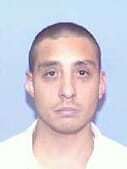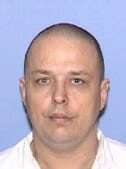Ivan Cantu Texas Death Row
Ivan Cantu was sentenced to death by the State of Texas for a double murder robbery. According to court documents Ivan Cantu would fatally shoot his cousin and a woman during a botched robbery. Ivan Cantu would steal the victims jewelry and vehicle. Ivan Cantu would be arrested, convicted and sentenced to death Texas Death…








